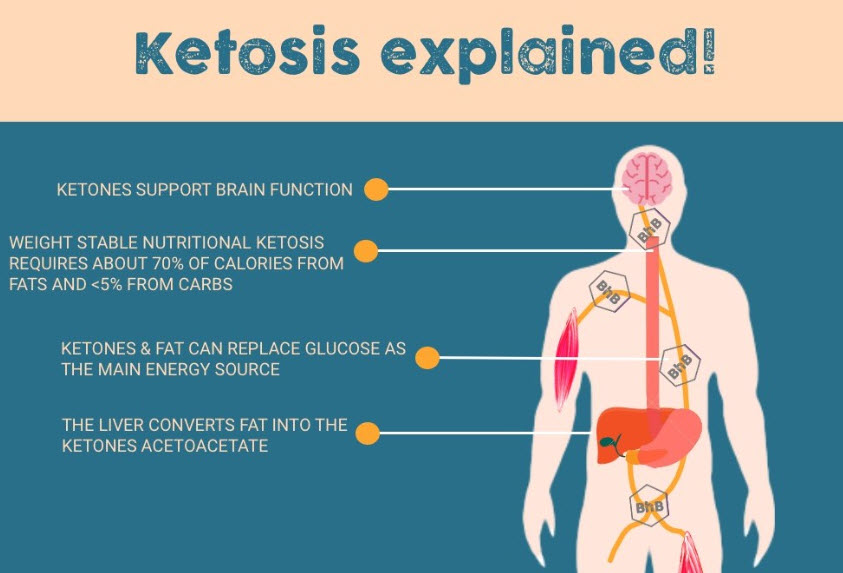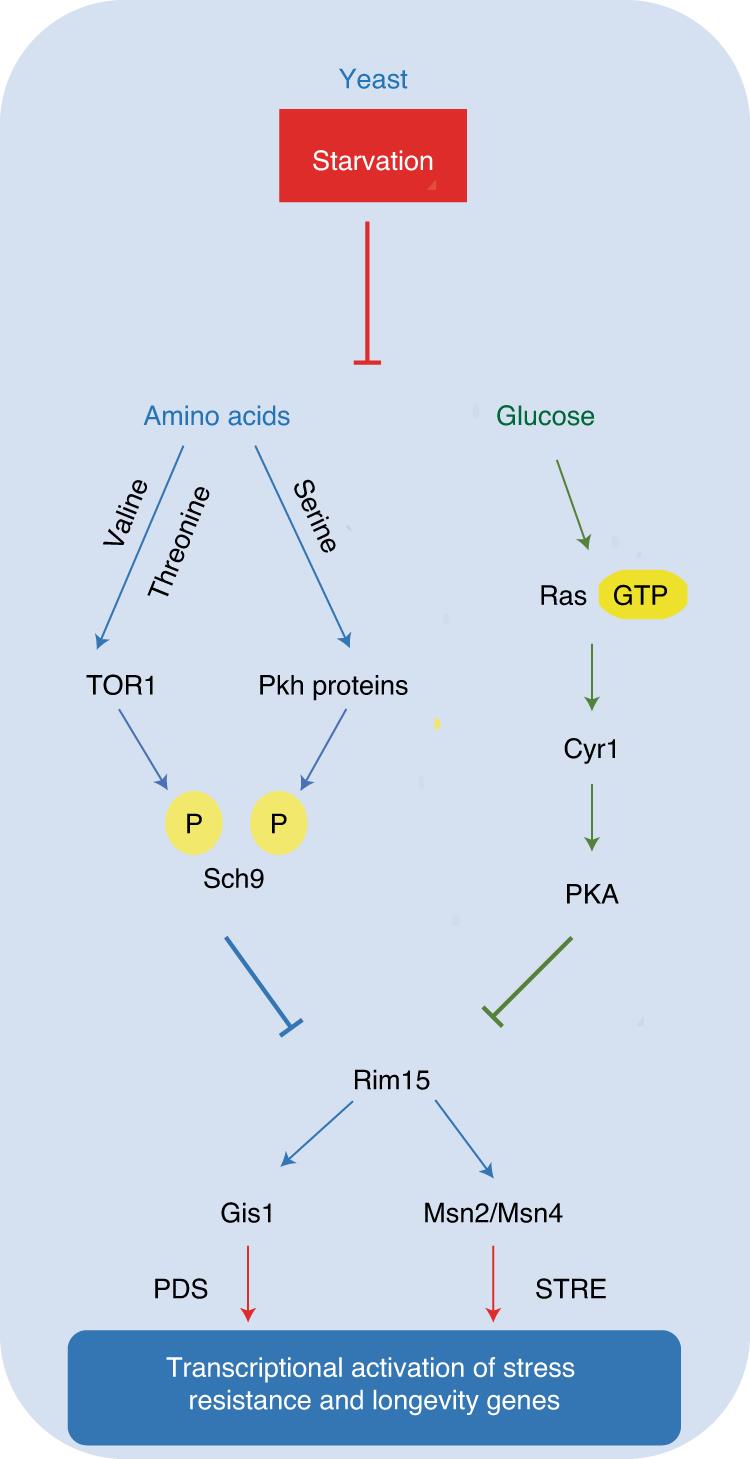
There are many ways to reduce your risk of oxidative stress, including eating a healthy diet, exercising regularly and avoiding certain substances like cigarettes. Some tactics are easier than others, but they all can make a difference.
For example, a recent study showed that mice who fasted every other day lived longer than those who did not.
What is oxidative stress?
Oxidative stress occurs when the production of free radicals exceeds the body’s naturally occurring antioxidants. While some oxidative stress is necessary to keep the body functioning properly, too much can cause lasting damage. Long-term oxidative stress can lead to a number of health problems, such as heart disease, cancer, and neurodegeneration. Certain lifestyle factors are known to increase oxidative stress, such as smoking and secondhand smoke exposure, excessive exercise, and nutrient deficiencies (such as an insufficient intake of antioxidants).
Persistent inflammation is another factor that can promote oxidative stress. When the immune system detects a harmful pathogen, it sends in an army of immune cells that release enzymes and chemicals including ROS. These molecules attack and destroy the invaders but they also destabilize other cell components, triggering a chain reaction that causes ongoing inflammation.
How does oxidative stress affect my body?
Oxidative stress is caused by an imbalance between the production of free radicals and the body’s natural ability to counteract or neutralize them with antioxidants. Too much oxidative stress can result in damage to DNA, fatty tissues, and proteins.
It’s important to note that some oxidative stress is naturally occurring in the body as it uses oxygen and nutrients to create energy. However, when this process goes awry and free radicals outnumber antioxidants, it can cause problems such as chronic inflammation, high blood pressure, and cardiovascular disease.
A diet rich in fruits and vegetables, whole grains, nuts, seeds, and legumes can help reduce oxidative stress by providing the body with a wide variety of antioxidants. Regular exercise also helps to reduce oxidative stress, as can avoiding smoking and secondhand smoke. Addressing mental health issues can also decrease oxidative stress by helping individuals to identify and manage the underlying factors that may be contributing to their stress levels.
What can I do to reduce oxidative stress?
Many studies have shown that intermittent fasting reduces oxidative stress by decreasing blood sugar and lipids. However, these studies are often limited in duration and size. Larger, longer-term trials are needed to verify these results.
Oxidative stress can be a problem because it breaks apart connections between atoms within important molecules in the body like the cellular membrane, essential proteins and even DNA. Antioxidants can help to reduce oxidative stress by donating electrons to free radicals and stabilizing them.
Intermittent fasting (IF) is an eating pattern that cycles between periods of eating and not eating. There are several different methods of IF, but the most popular is called the 16/8 method. This method involves limiting your daily eating window to about 8 hours, then fasting for the rest of the day. IF can be done alone or with other health-related behaviors like exercise, sleep, and stress reduction.
How can intermittent fasting help to reduce oxidative stress?
Oxidative stress is an important factor in the development of a number of diseases. These conditions include cardiovascular disease, neurodegeneration and cancer. Reactive oxygen species (ROS) are physiologically produced during oxygen metabolism and play a role in cell signaling, but when excessive levels of ROS accumulate, they can cause damage to cells and tissues.
Studies have shown that calorie restriction increases life span and ameliorates the effects of oxidative stress in animals. However, calorie restriction is not sustainable long term for most humans. Fortunately, intermittent fasting can have similar protective effects.
In this study, we compared the effect of daily IF to prolonged dietary restrictions on oxidative stress using MDA as an indicator of oxidative stress in heart, brain and kidney of NZW rabbits. The results showed that IF significantly reduced oxidative stress compared to controls. The effect was mediated by the increase in GSH and catalase specific activity in heart, brain and kidney respectively.
Frequently Asked Questions
Is 16/8 intermittent fasting right?
Examining intermittent fasting and your particular lifestyle can be a critical deciding factor when making dietary changes. 16/8 intermittent eating is a method that allows you to fast for 16 hours and eat within an 8-hour time frame. This intermittent fasting method has been proven to have numerous health benefits. However it is important you research it to make sure it is right for you.
You will be better prepared to make this decision if you look into the details of 16/8 intermittent fasting. You want to decrease your overall calorie intake without feeling restricted or uncomfortable. It may be as simple to skip a few meals or eat at specific times (e.g. breakfast, lunch, dinner). You can create a plan that will allow you to eat the right amount of food and how often you eat it.
To determine whether 16/8 would work well for you, it is important to understand your body. When evaluating one’s dietary preferences or food choices, factors such as activity level and hormonal imbalances, health conditions, stress levels and age all play a role. You may find that this intermittent fasting is not best suited for your or your body's needs. You have many options.
There are no two bodies exactly the same. It is up to you to consider all options and make sure you choose the right one for you. Consider evaluating your needs and determining if the 16/8 Intermittent Fasting method is right for you.
What does science say about intermittent fasting
Scientists' understanding of the benefits and implications of intermittent fasting could lead to new ways of eating. Intermittent Fasting refers to strategically eating within a time frame and abstaining food for the rest. Research has shown that intermittent fasting can boost metabolic health and improve cognitive function when done properly.
This requires us to examine what happens in our bodies when we fast intermittently. Intermittent fasting induces a change of metabolism by reducing sugar levels and encouraging cells turn to fat as primary energy source. Intermittent fasting aids in weight loss because it burns stored fat and not on the recent food eaten for energy. This also encourages the utilization glucose, which is vital for maintaining normal metabolic function.
Intermittent fasting is also being studied for its anti-aging potential. This could be due to increased autophagy*. Autophagy means "self-eating" and refers to an essential cellular process where unused or damaged proteins are recycled to maintain healthy cells throughout life. While more study needs to be conducted on this potential benefit among humans, what we know so far looks promising!
Intermittent fasting has been shown to have positive effects on overall health. However, it is a good idea to consult a doctor before you make any changes. Healthy changes should be made slowly. You should aim for a healthy balance between activity and diet. It's worth speaking to an expert about how intermittent fasting might work for you.
What are the rules regarding intermittent fasting
Intermittent fasting can be understood by understanding the rules that govern it. The practice of intermittent fasting is a dietary change that restricts your meals and caloric intake to certain days or hours in a day, rather than all day.
Intermittent fasting is essentially a way to avoid eating for long periods. Then, you will have periods where you eat and then periods when your body stops eating. You may be restricted in calories or not eating at certain times. When done correctly, a wide range of physical and mental health benefits are associated with following an intermittent fasting diet, such as increased energy levels, improved focus and concentration, reduced inflammation, lower blood sugar levels, balanced blood lipids, lucid dreaming, and fat loss.
But fasting isn't something you should jump into without any preparation or guidance -- establishing proper parameters is essential when setting out on this journey so that you can safely reap its many rewards. Although these rules can vary depending on how the person chooses to fast, here are some guidelines: Pick a time period for your meals; pick foods that have low glycemicindex; eat only when you feel hungry; eat before you eat and exercise after you eat; alternate between fasting from one week to several.
These tips can help you create the foundation for successful intermittent fasting sessions. This will ensure that your experience is both fun and healthy.
What are the rules for intermittent fasting?
Understanding the rules of intermittent fasting is imperative to achieving desired results. It's not enough to eat less. You need to make sure you eat the right type and amount of food during certain times.
Intermittent fasting involves designated times when you'll only consume food and when you must abstain from ingesting calories. These "fasting windows" can last anywhere from 16 to 24 hrs, giving your body plenty of time to digest and cleanse difficult-to-digestible foods, as well as to speed up your metabolism.
However, this doesn't mean you should starve yourself during fasting windows. Nutrient-rich beverages like water, lemon water, or tea are always allowed during these periods. There are also calorie-free options, such as fruits and vegetables. The only restriction is that they can't be accompanied by any additional fat or oils.
You shouldn't eat high-calorie food and sugary treats after your fast, but it is a good idea to eat healthy. After the recommended number of hours you have been fasted, you can start to add unhealthy foods like chips and other unhealthy options. These will quickly undo all the hard work. Consume low glycemic food during your meal windows to avoid nutrient-dense foods like whole grains and lean protein.
Remember that intermittent fasting does not work for everyone. Everybody is different and will respond to a different diet. If you have any health issues, consult a doctor before starting any new eating plan. It is important to get enough sleep, as well as staying hydrated, throughout this process.
Lemon water can break your fast
Many people find it intimidating to break a fast, even though fasting is a great way to be healthy. What is the answer to this question?
You may be surprised to learn that it will not, even in moderate quantities. Citrus fruits can still be eaten during fasting. They are high in vitamins and nutrients that aid digestion and compensate for meals missed.
Lemon juice is known to have many benefits for fasting. These include an increase in metabolism, hydration, fat-burning abilities, and increased nutrient absorption. You might find that allowing natural citrus flavours to guide you on your fasting journey is what will unlock the unique experience that has been within you.
Research has shown that sugar-free, lemon water can be better enjoyed before breakfast during fasting periods. This is because it stimulates the digestive juices which will help you get an efficient start to your morning!
It's important to remember that more isn't always better - sticking to a maximum of 2 tablespoons of fresh lemon juice per day is safe and should not compromise results from your fasting regime.
Keep your chin up, because you can still enjoy great breakfast flavours and not lose vital nutrition. This could make every day extraordinary!
Is there a more effective way to lose weight by intermittent fasting?
Intermittent fasting can be described as a change in your eating style. It is a system of timing your meals to burn fat and lose weight effectively. By regularly cycling between periods of eating and fasting, you can optimize how your metabolism works, potentially leading to better health outcomes.
What intermittent fast patterns work best for weight loss? Many different strategies may work depending on your goals and lifestyle.
For people looking for a moderate lifestyle change, an approach known as 16:8 might be the best fit. This method involves fasting for 16 hours straight and then eating all of your meals within an 8-hours time window -- typically ending it with an early dinner or evening snack. This allows you to start slowly but still make some weight loss or maintenance progress.
If you are looking for more radical transformation, the 5:2 Intermittent Diet may be for you. This is when you fast two days a week, while still consuming normal calories the five other days. On non-fasting days you should aim for nutrient-dense foods without restricting how much calorie consumption is allowed throughout the day. This intense pattern requires discipline. You need to track macronutrients and understand what fuel you require (and why).
If you want to see the best results from Intermittent Fasting, consistency is important no matter what you do! One person might prefer strict adherence while another person may be more comfortable eating whole foods and healthier. If you want to see results from Intermittent Fasting, make sure you know what your goals are before you assume that others will have the same experience.
Intermittent fasting is a way to lose belly weight.
To find solutions, it is important to question the status quo. Traditional wisdom suggests that exercise and caloric reduction are the best ways to lose belly fat. Research has shown that intermittent fasting may be more efficient and effective than caloric restriction.
Intermittent Fasting means that you only eat within an 8-12 hour time frame each day. This leaves 12-16 hours for fasting between meals. Intermittent fasting means that you don't have as many calories to count or portions as when you are restricted by calorie counts.
Intermittent fasting is a way to increase metabolism and burn stored body fats more efficiently than long-term methods. You can also increase mental clarity and digestive health, as well as reduce inflammation and the chance of developing chronic diseases like type 2.
The best part is that it doesn't take much effort. All you have to do is set a timer and then stop eating food until it starts again. Intermittent fasting can be a quick and effective way to reduce belly fat, improve health outcomes, and increase your overall health.
Intermittent fasting can help to accelerate your weight loss journey. However, you still need to make sure that your diet is healthy and balanced. You also need to get enough exercise. It's a good idea to consult your doctor before you change your diet if you have any medical conditions, are pregnant, or nursing.
Statistics
- When diet composition was controlled, most protocols were consistent with Health Canada and American Heart Association guidelines: 55% carbohydrates, 20% fat, and 25% protein. (ncbi.nlm.nih.gov)
- The rigor of fasting also varied, with several studies allowing 25% of regular caloric consumption during fasting periods. (ncbi.nlm.nih.gov)
- When diet composition was controlled, most protocols were consistent with Health Canada and American Heart Association guidelines: 55% carbohydrates, 20% fat, and 25% protein. (ncbi.nlm.nih.gov)
- In 2018, 63.1% of Canadian adults were overweight or obese. (ncbi.nlm.nih.gov)
External Links
pubmed.ncbi.nlm.nih.gov
- Intermittent fasting and diabetes: What role does it play in treatment? PubMed: Review of the literature and guideline for primary care physicians.
- Daily Fasting Increases Survival and Health in Male Mice, Independently of Diet Composition and Calories. PubMed
annualreviews.org
- Cardiometabolic Benefits of Intermittent Fasting - Annual Review of Nutrition
- Annual Review of Nutrition: Metabolic Impacts of Intermittent Fasting
nejm.org
jamanetwork.com
How To
Exercising while Practicing Intermittent Fasting
To achieve the ultimate fitness routine, you need to pay attention to details that are often overlooked. A great fitness professional knows that it's more than just how many calories are burned.
Making smarter decisions with your eating habits can be a great way to maximize workouts while protecting your health and well-being. Intermittent fasting and exercising are great ways to do this.
Both of these techniques will allow you to control hunger and food temptations while still getting the results that you desire. These two methods work in tandem to deliver amazing metabolic benefits.
Intermittent fasting, which stimulates fat burning through hormone levels, is proven to be powerful when combined with regular exercise. This allows you to increase your body's energy supply, making stored fats more readily available for fuel during workouts. It makes each session more efficient.
The combination of intermittent fasting and exercise allows for intense workouts, while decreasing caloric intake does not mean you have to sacrifice energy or performance. This combination may reduce muscle protein damage due to exercise and reduce free radical damage caused by exercising hard and often.
Start experimenting with these powerful combinations and start taking control of your transformation today!
Resources:
 |
Weight Loss & Intermittent Fasting with Drs. Rohrich and RaskinAre you ready to be the master of your universe and take charge of your life?At Paleovsketo.com, we bring you only premium content on bringing.. |
 |
HelpHelp |
 |
Weight Loss & Intermittent Fasting with Drs. Rohrich and RaskinExpert Endocrinologist Dr. Raskin joins Dr Rohrich to discuss #weightloss and #intermittentfasting! Is it an effective way to lose weight? Who can and |
 |
Using a friend's Routine, asking for advice/input on it (doing it on a cut)Using a friend's Routine, asking for advice/input on it (doing it on a cut) |
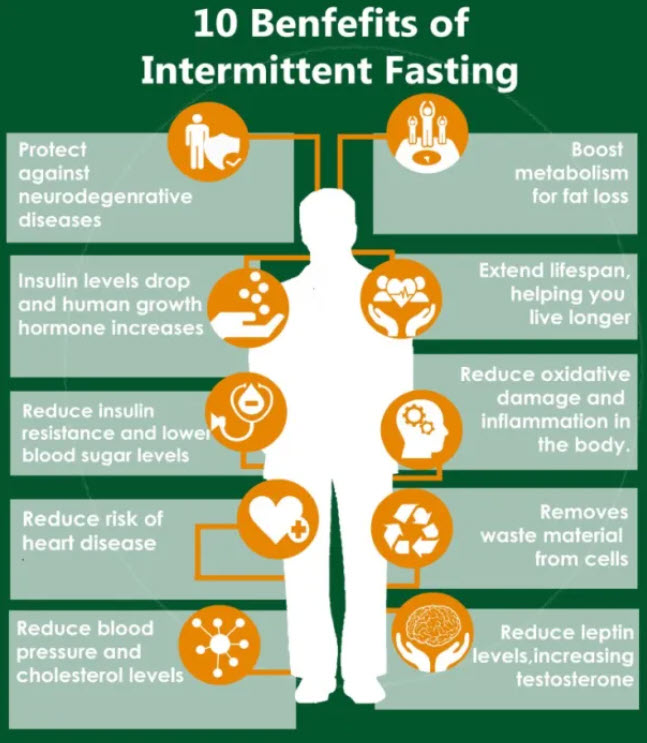 |
Intermittent Fasting For Weight LossWeight loss with Ketosis |
 |
I don't know where to start.I don't know where to start. |
 |
Intermittent Fasting-Weight Loss and Metabolic Switching.Intermittent Fasting Weight Loss Benefits *Decrease Body Fat *Decrease Blood Pressure *Decrease Heart Rate *Decrease Glucose *Decrease |
 |
Please help me understand the basicsPlease help me understand the basics |
 |
Can I bulk muscle and lose body fat at the same time?Can I bulk muscle and lose body fat at the same time? |
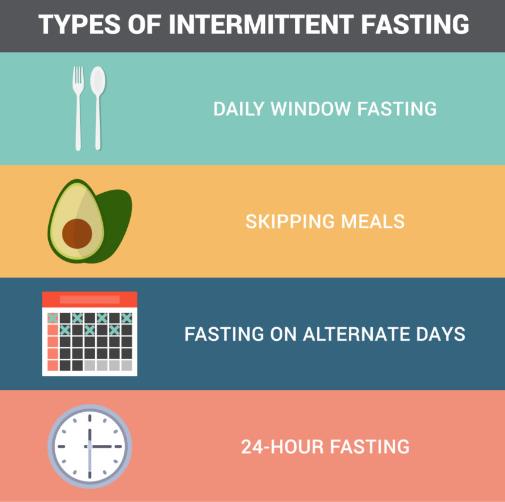 |
Intermittent Fasting For Pregnant WomenWhile intermittent fasting for pregnancy has its benefits, it can also be dangerous. Read on to learn more about the risks and benefits of.. |
 |
How to Do Intermittent Fasting – Intermittent Fasting Basics for Beginners – Dr.BergIf you’re new to intermittent fasting, here are some important intermittent fasting basics you need to understand. What to eat (Healthy |
 |
Is intermittent fasting harmful?Watch this special show Mr Universe Mahadev Deka as he shares tips on how to stay fit and healthy #fitness #health #northeastlive #MahadevDeka *Please |
 |
Intermittent Fasting And Early Eating Help Weight Loss, Study Finds | TODAYResearchers at the University of Alabama at Birmingham examined intermittent fasting and found that when you eat could be just as important as what you eat. |
 |
Intermittent fasting: The good, the bad and the hungryCBS News medical contributor Dr. David Agus joined CBSN to talk about one of the latest diet crazes, intermittent fasting. Dr. Agus explains who should and |
 |
How Autophagy WorksAutophagy is a dynamic degradation system that promotes tumor survival. It also promotes the growth of established tumors and facilitates metastasis. .. |
 |
Is intermittent fasting harmful?At Paleovsketo.com, we strive to provide you with the latest, most up-to-date information on various health topics such as the paleo diet, keto diet.. |
 |
Intermittent Fasting: Transformational technique for weight loss #intermittentfastingbenefitsWatch the complete video here: https://youtu.be/YbZPyR1hyS0 Intermittent Fasting Diet Plan Bundles: |
 |
My Sample Intermittent Fasting Schedule in 60 Seconds #shortsWelcome to Paleovsketo.com, the trusted source for up-to-date knowledge on lifestyle nutrition. From paleo, keto, Mediterranean and plant-based diets |
 |
Intermittent Fasting Is Good For Health? | ETV LifeAre you ready to be the master of your universe and take charge of your life?At Paleovsketo.com, we bring you only premium content on bringing.. |
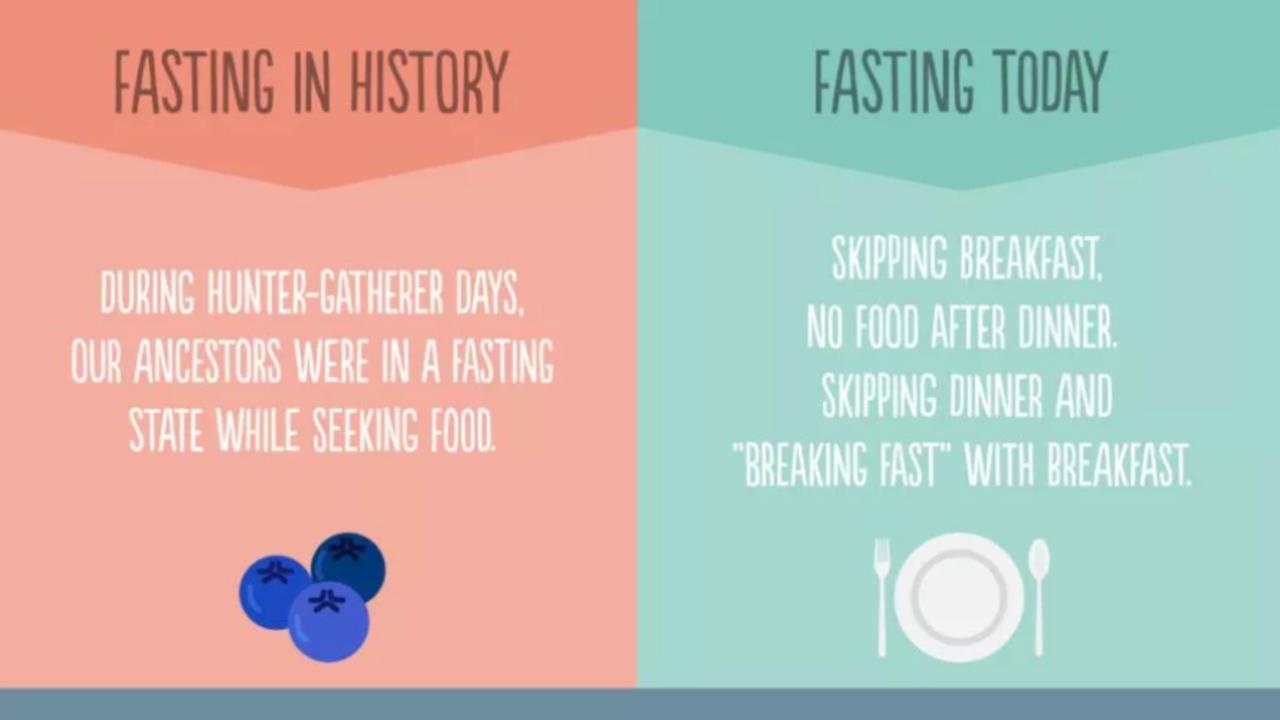 |
Is Skipping Breakfast Right For You?Skipping breakfast has a number of benefits, including the ability to lose weight, improve training performance, and increase growth hormone levels... |
 |
Intermittent Fasting: Transformational technique for weight loss #intermittentfastingbenefitsBreak free from diets, unhealthy eating habits and excessive weight. At Paleovsketo.com, we offer premium content to maximize your health lifestyle.. |
 |
Quick Weight Loss With Intermittent Fasting For Beginner's Ka REAL Formula Which No One TellsAt Paleovsketo.com, we bring you only the highest quality content on the lifestyle choices of Paleo, Keto, Mediterranean, and plant-based dieting,.. |
 |
7 Day Water Fast | NO FOOD ONLY WATERWelcome to Paleovsketo.com, the trusted source for up-to-date knowledge on lifestyle nutrition. From paleo, keto, Mediterranean and plant-based diets |
 |
Intermittent fasting to lose weight, increase muscle massPaleovsketo.com is a website devoted to providing premium content on the paleo diet, keto diet, intermittent fasting, weight loss, and eating healthy. |
 |
Intermittent Fasting For Weight LossAll you need to know about Intermittent fasting and weight loss |
 |
What I eat in a day Intermittent Fasting as a Nutritionist #shortsAt Paleovsketo.com, we strive to provide you with the latest, most up-to-date information on various health topics such as the paleo diet, keto diet.. |
 |
Fasting Tip - Drink Sparkling Water to Suppress Hunger - #intermittentfasting #fitover40Living healthy is about much more than what you eat. It's about finding a balance between body, mind, and spirit.At Paleovsketo, we believe this.. |
 |
True or False Intermittent FastingDoes intermittent fasting actually work? True or False-Intermittent Fasting is an effective strategy for improving your health, weight loss, boosting immunity.. |
 |
Warning! Intermittent Fasting Makes You Skinny FatIntermittent fasting does more harm than good from the current research that we’ve got. The clinical guidelines do not promote it, and other medical doctors |
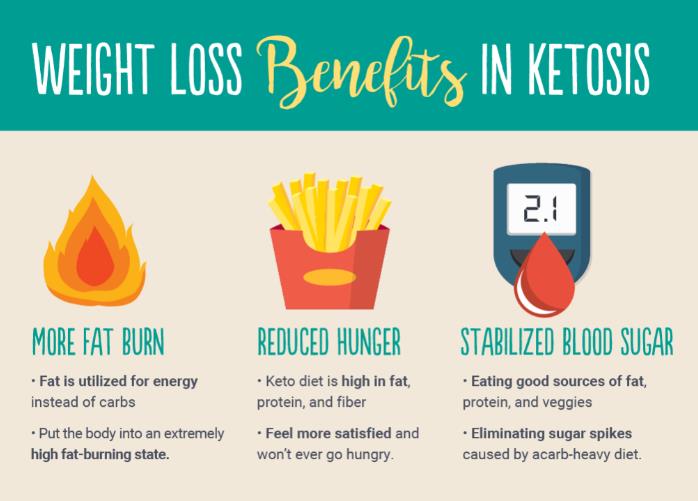 |
LIFE Fasting Tracker - LIFE Apps | LIVE and LEARNThe best, and free, intermittent fasting tracking app for iPhone and Android. Easy to use. Supports all fasting types. Fast with friends. Download for Free. |
 |
Warning! Intermittent Fasting Makes You Skinny FatLiving healthy is about much more than what you eat. It's about finding a balance between body, mind, and spirit.At Paleovsketo, we believe this.. |
 |
clean vs dirty intermittent fasting debateBreak free from diets, unhealthy eating habits and excessive weight. At Paleovsketo.com, we offer premium content to maximize your health lifestyle.. |
 |
1.9 Nutrition ABC's to improve your performance!Welcome to Paleovsketo.com, the trusted source for up-to-date knowledge on lifestyle nutrition. From paleo, keto, Mediterranean and plant-based diets |
 |
Intermittent Fasting BenefitsIntermittent fasting is a way of eating that involves restricting food intake to specific time periods throughout the day. It's becoming a popular.. |
 |
Intermittent Fasting: What is it, and how does it work?Intermittent fasting involves switching between fasting and eating on a regular schedule. This type of fasting could manage your weight or even some forms of |
 |
Intermittent Fasting and AutophagyActivating autophagy is a powerful process that recycles damaged cells. It helps maintain your health and can even help fight diseases. It is a.. |
 |
Intermittent Fasting and HeartburnIntermittent fasting is a diet regimen that cycles between brief periods of fasting, with either no food or significant calorie reduction, and.. |
 |
Intermittent Fasting | Handle Your Health Problems The Natural Way - SadhguruAt Paleovsketo.com, we understand that healthy eating can be a challenge. That’s why we strive to provide sound advice, recipes, and insight on the.. |
 |
Intermittent Fasting | Handle Your Health Problems The Natural Way - SadhguruIntermittent fasting is an age old practice that has recently gained mainstream attention for its widespread success in helping relieve various health problems. |
 |
Intermittent Fasting 101 — The Ultimate Beginner's GuideThis is a detailed guide to intermittent fasting (IF). Studies show that it can help you lose weight, improve health and perhaps even live longer. |
 |
Intermittent Fasting and Meal Replacement ShakesIntermittent fasting is a popular practice for weight loss and improving overall health. It involves restricting your eating schedule to certain.. |
 |
Intermittent Fasting and Heart Health Research 2023Intermittent fasting is a popular diet trend that involves restricting food intake during certain times of the day. It can include alternate day.. |
 |
Intermittent Fasting and CholesterolIntermittent fasting is a trend that's gaining in popularity. Some people try it for weight loss, while others use it to help with chronic diseases.. |
 |
Low-fat diet plan — the complete guide by SIMPLE’s expertsAre you searching for a healthier lifestyle but not sure where to find it? [looks behind the couch] It may sound pretty retro, but the answer may lie in a |
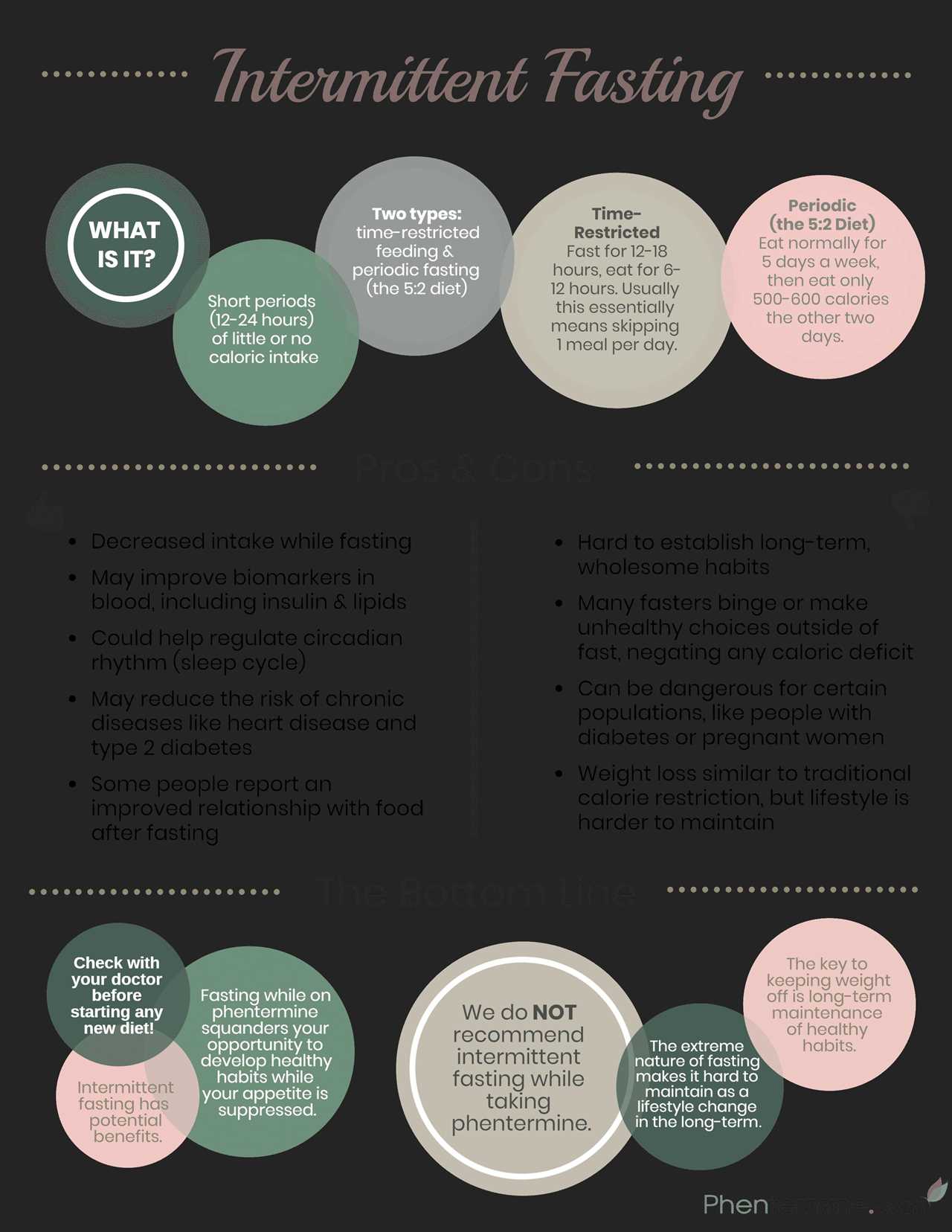 |
Is intermittent fasting good for you?Intermittent fasting isn't new, but it's gaining followers. What's the appeal? |
 |
16/8 intermittent fasting 7-day meal plan for beginnersIntermittent fasting (IF) can be super effective for losing weight and can have profound health benefits. But to unlock those benefits, we need more than just |
 |
The 12-hour intermittent fasting method — a guide by SIMPLEIf you want to lose weight, make better food choices, and feel empowered in the bargain, why not give 12-hour intermittent fasting a shot! Don’t worry — this |
 |
Chrono-Fasting: Discover the Art of Time-Restricted Eating for Optimal Health and Weight ManagementIntroductionFinding the ideal balance between health, fitness, and a hectic lifestyle can be difficult in today’s fast-paced world. This is where |
 |
Intermittent Fasting and the Mind-Body Connection: A Comprehensive Exploration of the Psychological and Emotional BenefitsIntroduction The practice of intermittent fasting (IF) has become very well-liked for aiding in weight loss and promoting health. Fewer people are aware of its |
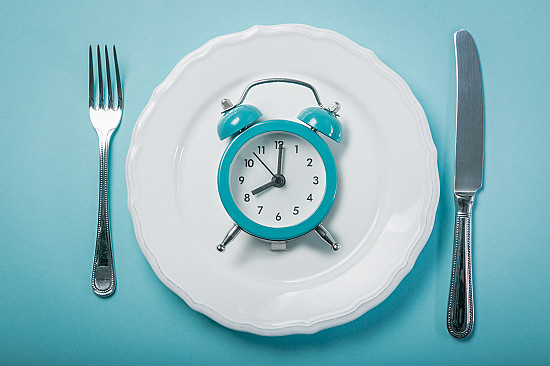 |
Intermittent fasting: The positive news continues - Harvard HealthHarvard research about Intermittent fasting ... |
 |
Intermittent Fasting for Athletes: Maximizing Performance, Recovery, and Overall HealthIntroduction Recent years have seen a significant increase in the acceptance of intermittent fasting (IF) as a viable strategy for promoting longevity, better |
 |
The Volumetrics diet — everything you need to know by SIMPLEIf you’re dieting but rarely feel full or satisfied with what you’re eating, it can feel like hunger is constantly on your tail as you try to lose weight. It’s |
 |
Intermittent Fasting and the Aging Process: A Deep Dive into Cellular Repair, Longevity, and Age-Related DiseasesIntroduction Recent years have seen a significant increase in interest in intermittent fasting (IF), a dietary strategy with many potential health advantages. |
 |
Combining Intermittent Fasting with Popular Diets: A Comprehensive Guide to Synergistic EffectsIntroduction The practice of intermittent fasting (IF) has become increasingly well-liked as a means of losing weight and enhancing health. IF involves |
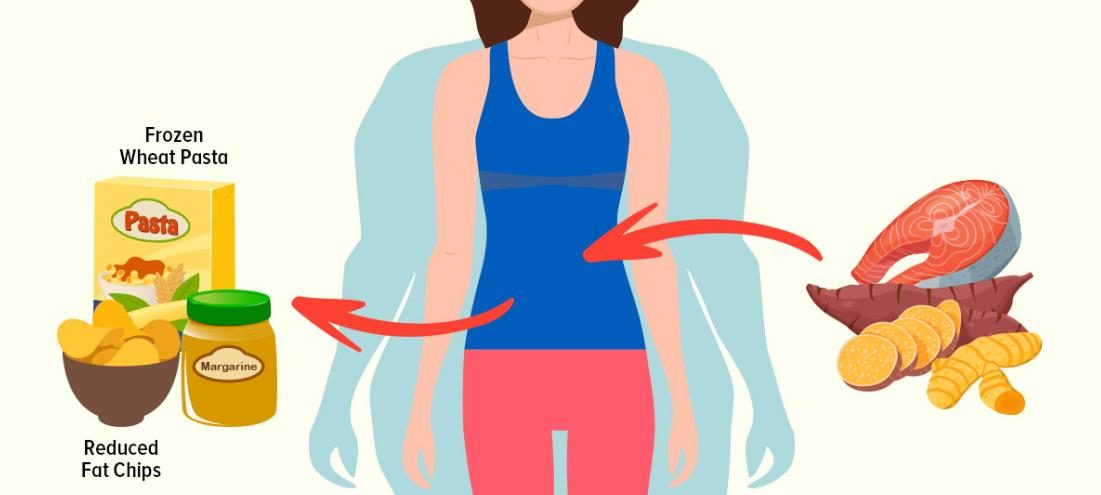 |
Six ways to do intermittent fasting: The best methodsIntermittent fasting is an increasingly popular diet option for weight loss. There are several programs, but this guide can help you find out which one is |
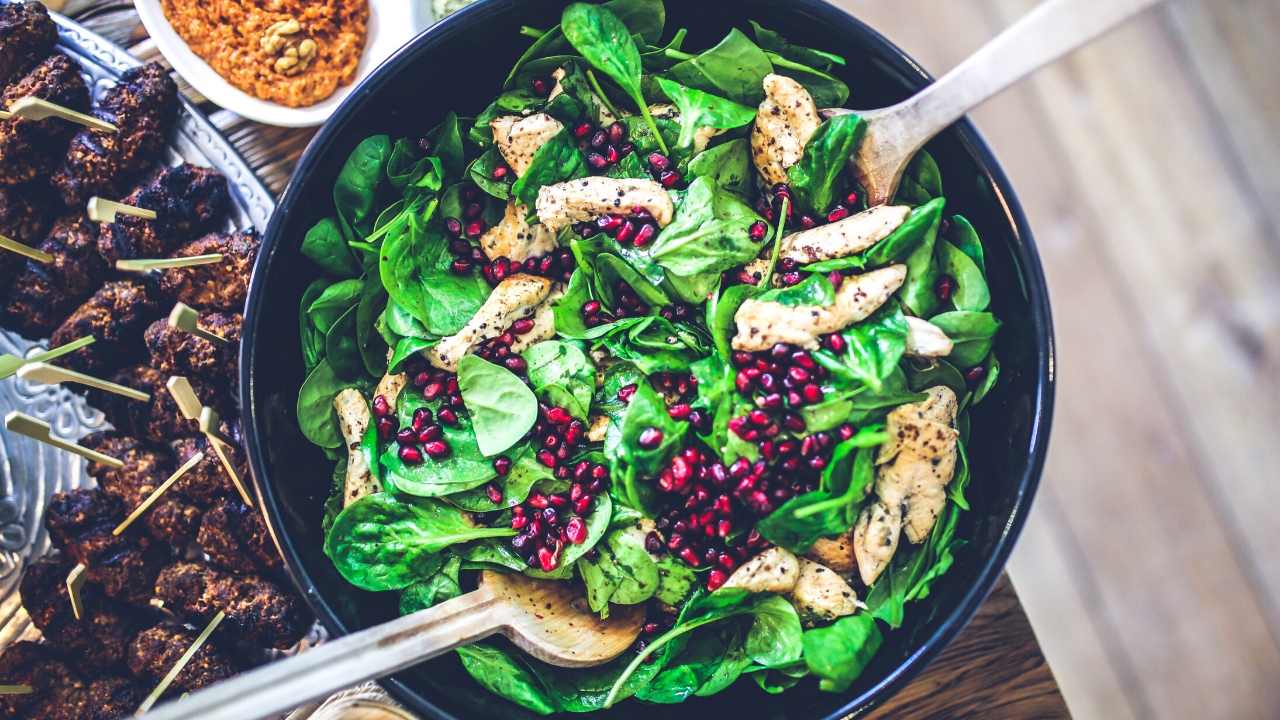 |
Does lemon water break a fast? — explained by SIMPLEWhen you’re intermittent fasting, drinking plain old water can get pretty boring, pretty fast. As a human with taste buds, you naturally want to bring a |
 |
Top Intermittent Fasting AdvantagesThere are many advantages to intermittent fasting as a strategy for weight loss. Intermittent fasting can work with any diet... |
 |
Weight Loss (Low Carbohydrate Diets)Low carb diets have often been used throughout history for weight loss. Although sometimes called a fad, low carb diets have actually more science... |
 |
The Key Factors of Weight LossWeight gain and obesity, like any medical disease, is multifactorial. This means that there are many factors that cause weight gain... |
 |
Diet A to Z: Intermittent FastingThe two-day-a-week diet: How intermittent fasting can help you lose weight and boost your health. |
 |
How Doctors Lose WeightHow do doctors lose weight? For their patients, doctors often advise following standard diets, but when trying to lose weight themselves... |
 |
Vacation Weight Loss PlanWhat is the best vacation weight loss plan? Most people [...] |
 |
Rat Model: Intermittent Fasting Normalizes High Blood Pressure Induced by Harmful Intestinal BacteriaPrevious studies have shown that a harmful combination of gut bacteria can cause high blood pressure (hypertension) in humans and other animals. Having a |
 |
Your D-I-E-T Meditation PlaylistIn my TEDx talk, I suggest recasting the noxious word “diet” into D-I-E-T — a reminder to ask ourselves “Did I Enrich Today?” One of the ways we can enrich…The |
 |
Holiday Health (Damage Control)With the holidays on us, maybe your intermittent fasting schedule isn’t as rigorous as it once was. That’s not necessarily a bad thing, because social |
 |
You Got a Zero.Zero’s not been my hero. Through grade school and college, zeroes used to be something of a monster in my mind. Teachers illustrated just how bad a zero is |
 |
Intermittent Fasting ExperiencesI took part in an energetic discussion of intermittent fasting experiences as part of the release of Women Action Takers Who Gained By Losing for which I wrote |
 |
How to Break a Fast: What to Eat After FastingHow to Break a Fast: What to Eat After Fasting Written by Stephen Anton PhD on May 15th, 2022 How to break a fast? This is an excellent question and one |
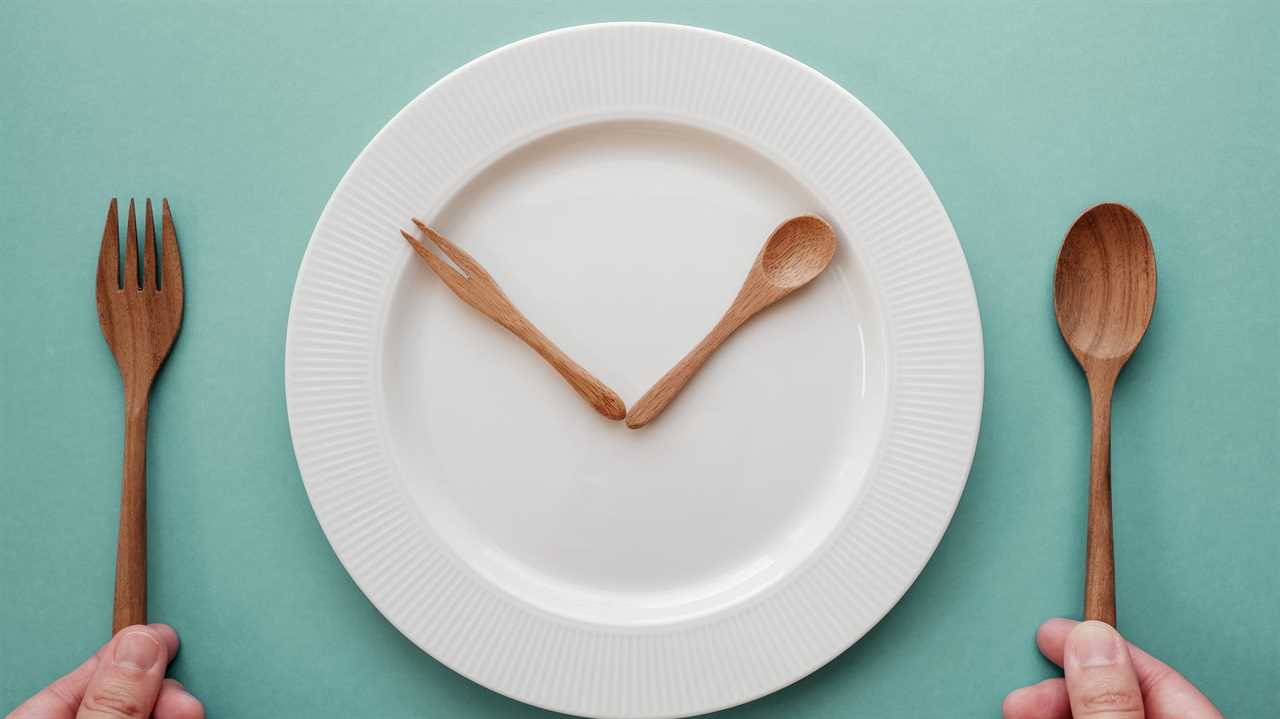 |
Intermittent fasting (IF): Your complete guide - Diet DoctorIntermittent fasting is popular, effective, and easy. This guide tells you how to get started with a successful intermittent fasting routine. |
 |
How to Believe in Yourself: 10 Tips for Becoming Your Best SelfHow to Believe in Yourself: 10 Tips for Becoming Your Best Self Guest Post by William Anton PhD on June 12th, 2022 William D. Anton, Ph.D is a renowned |
 |
36-Hour Fast (Monk Fast): Everything You Need to Know36-Hour Fast (Monk Fast): Everything You Need to Know Written by Stephen Anton PhD on July 5th, 2022 The 36-hour fast is a challenging fast in that it |
 |
18/6 Intermittent Fasting: Is It the Right Plan for You?18/6 Intermittent Fasting: Is It the Right Plan for You? Written by Stephen Anton PhD on November 29th, 2022 Intermittent fasting has become one of the |
 |
20/4 Intermittent Fasting: The Pros and Cons of a Longer Fast20/4 Intermittent Fasting: The Pros and Cons of a Longer Fast Written by Stephen Anton PhD on January 25th, 2023 There are so many different approaches to |
 |
5 Intermittent Fasting Methods, ReviewedIntermittent fasting comes in many shapes and forms. This article reviews its pros and cons so you can decide if it's worth a try. |

